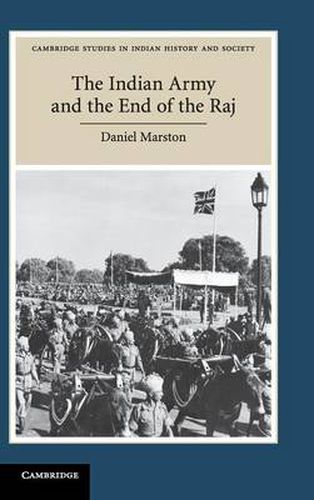Readings Newsletter
Become a Readings Member to make your shopping experience even easier.
Sign in or sign up for free!
You’re not far away from qualifying for FREE standard shipping within Australia
You’ve qualified for FREE standard shipping within Australia
The cart is loading…






The Partition of British India in 1947 resulted in the establishment of the independent states of India and Pakistan and the end of the British Raj. The decision to divide British India along religious lines led to widespread upheaval and communal violence in the period leading up to and following the official day of independence, 15 August 1947. In this book, Daniel Marston provides a unique examination of the role of the Indian army in post-World War II India. He draws upon extensive research into primary source documents and interviews with veterans of the events of 1947 to provide fresh insight into the vital part that the Indian Army played in preserving law and order in the region. This rigorous book fills a significant gap in the historiography of the British in India and will be invaluable to those studying the British Empire and South Asia more generally.
$9.00 standard shipping within Australia
FREE standard shipping within Australia for orders over $100.00
Express & International shipping calculated at checkout
The Partition of British India in 1947 resulted in the establishment of the independent states of India and Pakistan and the end of the British Raj. The decision to divide British India along religious lines led to widespread upheaval and communal violence in the period leading up to and following the official day of independence, 15 August 1947. In this book, Daniel Marston provides a unique examination of the role of the Indian army in post-World War II India. He draws upon extensive research into primary source documents and interviews with veterans of the events of 1947 to provide fresh insight into the vital part that the Indian Army played in preserving law and order in the region. This rigorous book fills a significant gap in the historiography of the British in India and will be invaluable to those studying the British Empire and South Asia more generally.